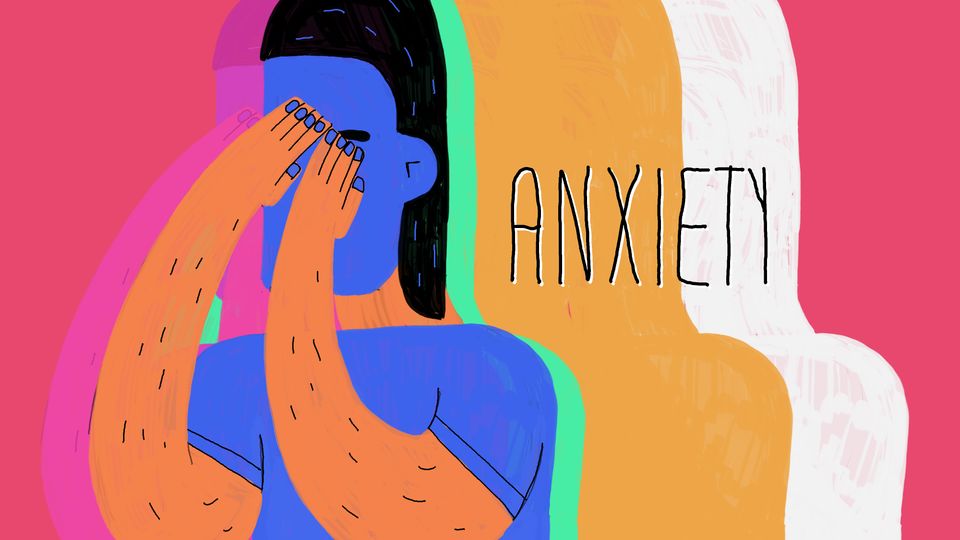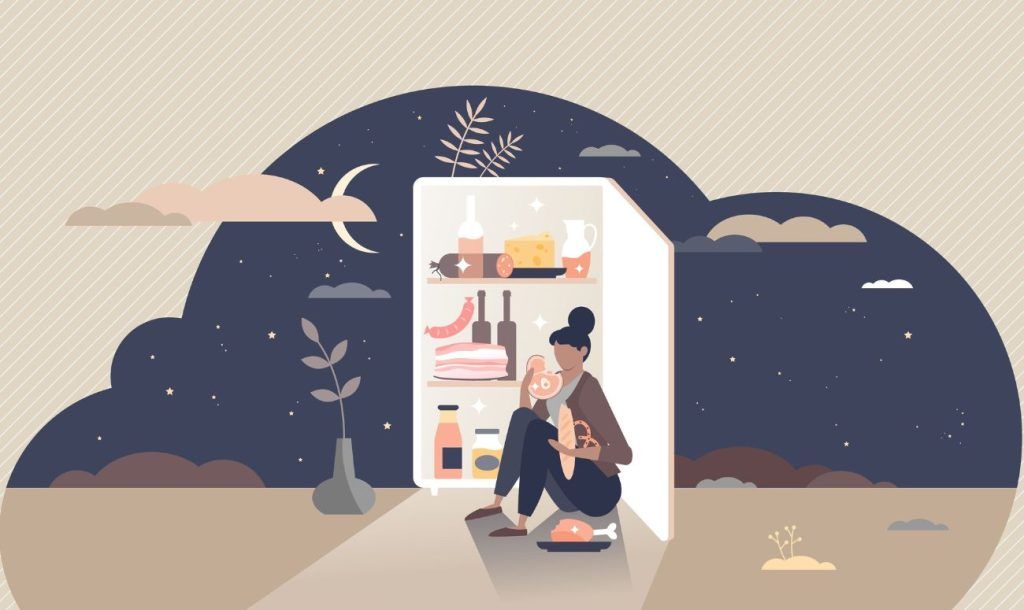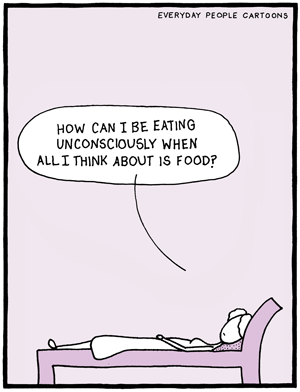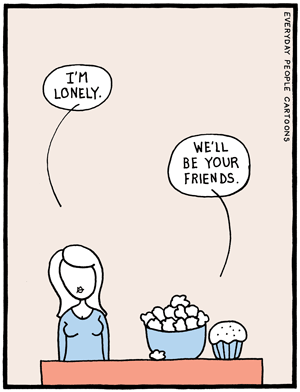Anxiety's Grip on Your Fork: Exploring the Impact of Anxiety on Our Diet

Anxiety is a common emotional response to stress, characterized by feelings of unease, worry, and apprehension. While we often associate anxiety with its effects on our mental well-being, it's important to recognize its impact on other aspects of our lives, including our diet.
In this article, we'll delve into the intricate connection between anxiety, our eating habits, and digestion, shedding light on the scientific and psychological mechanisms at play.

- Emotional Eating: When anxiety strikes, many of us turn to food for comfort. This phenomenon, known as emotional eating, is a way to cope with overwhelming emotions. Stress hormones, such as cortisol, are released during anxiety, triggering cravings for high-calorie, sugary, or fatty foods. These foods provide temporary relief by stimulating the release of "feel-good" chemicals in our brain. However, this reliance on food as an emotional crutch can lead to unhealthy eating patterns and weight gain over time.
- Disrupted Appetite: Anxiety can disrupt our normal appetite, leading to both overeating and loss of appetite. For some individuals, anxiety triggers intense hunger pangs, leading to excessive food consumption. On the other hand, others may experience a loss of appetite, finding it difficult to eat regular meals. These fluctuations in appetite can disrupt our overall nutrition and impact our energy levels and well-being.
- Influence on Digestion: Anxiety doesn't just affect our eating habits; it also takes a toll on our digestive system. When we're anxious, our body enters a "fight-or-flight" response, diverting resources away from non-essential functions, such as digestion. This can lead to symptoms like stomachaches, indigestion, bloating, and even diarrhea. Prolonged anxiety may also disrupt the balance of gut bacteria, which can further impact digestion and overall gut health.
- Mindless Snacking: Anxiety often triggers a state of hyperarousal, causing our thoughts to race and making it difficult to focus on the present moment. This can lead to mindless snacking, where we eat without paying attention to portion sizes or nutritional value. We might find ourselves munching on snacks absentmindedly while scrolling through social media or watching TV. Mindless snacking not only promotes unhealthy eating but can also contribute to weight gain and feelings of guilt or dissatisfaction.
- Restrictive Eating Patterns: While some individuals turn to emotional eating, others respond to anxiety by adopting restrictive eating patterns. The desire for control amid chaotic emotions can manifest in strict dietary rules or even the development of disordered eating behaviors. Restrictive diets can lead to nutrient deficiencies, impaired metabolism, and an unhealthy relationship with food.

Understanding how anxiety affects our diet is crucial for developing strategies to maintain a healthy and balanced eating routine. By recognizing the influence of emotional eating, disrupted appetite, digestion problems, mindless snacking, and restrictive eating patterns, we can work towards better managing our anxiety-related eating habits.
Remember, in the face of anxiety, it's essential to nourish not only our bodies but also our minds.
Now, let's delve into practical strategies to combat the negative effects of anxiety on eating and overall health. By incorporating diet tips and psychological techniques into your daily routine, you can foster a healthier relationship with food and navigate the challenges of anxiety more effectively.

- Balanced Nutrition: Maintaining a balanced and nourishing diet is essential for managing anxiety-related eating habits. Focus on incorporating whole, unprocessed foods into your meals, including fruits, vegetables, lean proteins, whole grains, and healthy fats. These nutrient-dense foods provide the necessary vitamins, minerals, and antioxidants that support mental well-being. Avoid excessive consumption of sugary or highly processed foods, as they can contribute to mood swings and energy crashes.
- Mindful Eating: Practicing mindful eating can help counteract the tendencies of mindless snacking and emotional eating. When you sit down for a meal, take a moment to appreciate the aroma, texture, and flavors of your food. Eat slowly, savoring each bite, and pay attention to your body's hunger and fullness cues. By cultivating awareness during mealtime, you can enhance your enjoyment of food, regulate your portions, and develop a healthier relationship with eating.
- Regular Meal Patterns: Establishing regular meal patterns can provide structure and stability to your eating routine. Aim to eat three balanced meals daily, with nutritious snacks in between if needed. Consistency in meal timing helps regulate your metabolism and stabilize blood sugar levels, reducing the likelihood of sudden hunger or cravings. Prioritize a wholesome breakfast to kickstart your day and prevent overeating later on.
- Incorporating Relaxation Techniques: Incorporating relaxation techniques into your daily routine can help alleviate anxiety and reduce its impact on eating habits. Practice deep breathing exercises, progressive muscle relaxation, or mindfulness meditation. These techniques promote relaxation, lower stress levels, and create a sense of calm. Engaging in activities like yoga, tai chi, or taking walks in nature can also provide a much-needed break from the fast-paced nature of modern life.
- Seek Support: Are you feeling overwhelmed by anxiety and its impact on your eating habits and overall well-being? Don't face it alone. As a professional specializing in anxiety, dietetics, and psychology, I'm here to offer the support you need. By reaching out to a professional, you can receive personalized guidance in developing a recovery plan that not only supports your mental health goals but also nourishes your body.
Remember, you're not alone on this journey. Joining support groups or online communities can provide a sense of connection and understanding, allowing you to share experiences and learn from others who are facing similar challenges.
If you're ready to take the next step towards improved well-being, don't hesitate to reach out to me. Together, we can work towards a healthier, happier you. Take action now and start your journey towards a thriving life.
Combatting the negative effects of anxiety on eating and health requires a holistic approach that integrates diet tips and psychological techniques. By focusing on balanced nutrition, practicing mindful eating, establishing regular meal patterns, incorporating relaxation techniques, and seeking support, you can regain control over your eating habits and promote overall well-being.
Stay tuned for more valuable insights and practical tips to help you thrive!